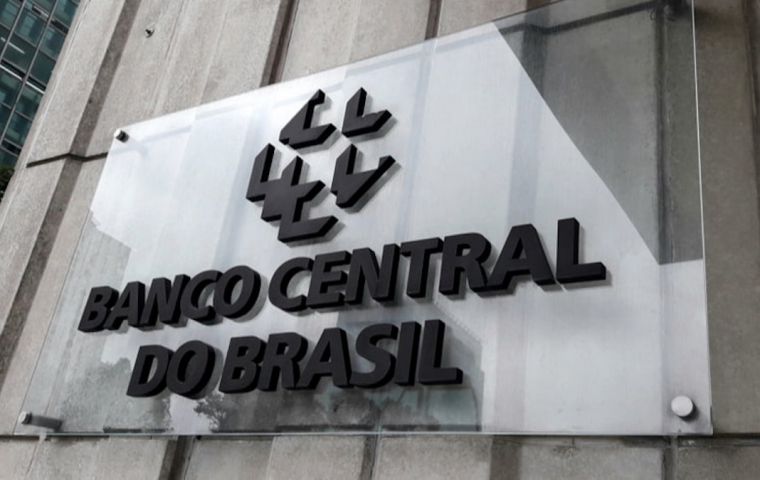MercoPress. South Atlantic News Agency
Brazil congress passes bill granting the central bank greater autonomy
 The central bank already has de facto autonomy to implement the policies it deems necessary to achieve its inflation-targeting goals
The central bank already has de facto autonomy to implement the policies it deems necessary to achieve its inflation-targeting goals Brazil's lower house of Congress on Wednesday approved the text of a bill granting the central bank autonomy, which will set fixed four-year terms for the bank's president and directors, and tighter rules on their exit from office.
The central bank already has de facto autonomy to implement the policies it deems necessary to achieve its inflation-targeting goals, but the bank president is technically a member of the government's Cabinet and is appointed by Brazil's president.
This bill aims to guarantee that the institution's operational independence is completely free of political interference.
Former Central Bank President Henrique Meirelles tweeted on Wednesday that this is “one of the most important institutional advances in recent years,” and will foster economic stability, confidence and attract investment.
“This independence gives the central bank the confidence to make the right decisions and do the best for the country based on technical data - just as a monetary authority's role should be,” he tweeted.
The central bank's main objective will be meeting its inflation targets. The bill stipulates that its secondary objectives include ensuring the stability of the financial system, smoothing fluctuations in the economic cycle, and promoting full employment.
The bill was approved by the Senate last year. The lower house will now vote on some amendments before it is passed to President Jair Bolsonaro for signature.




Top Comments
Disclaimer & comment rulesCommenting for this story is now closed.
If you have a Facebook account, become a fan and comment on our Facebook Page!